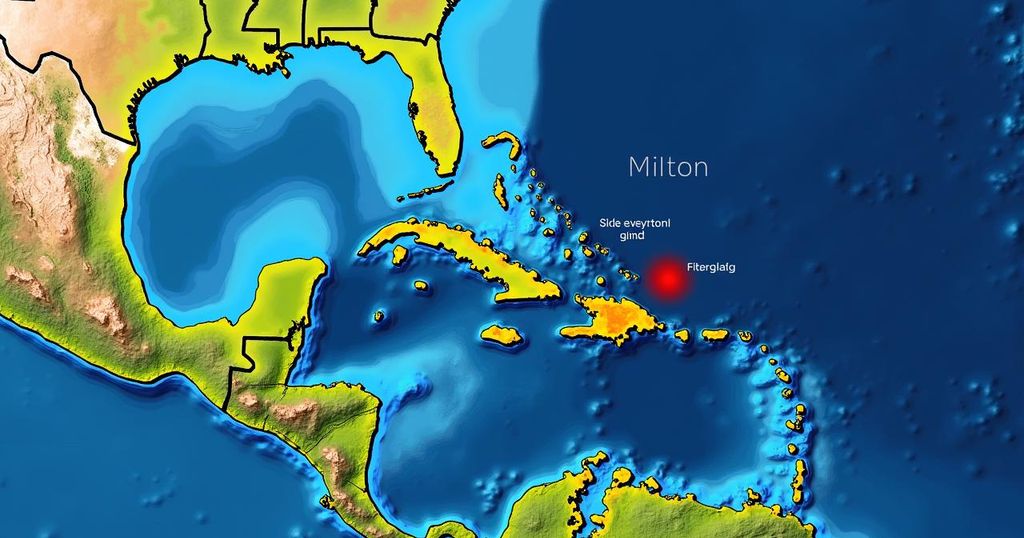Hurricane Milton’s Path Predicted with Unprecedented AI Accuracy – A New Era in Weather Forecasting

Recent advancements in meteorological forecasting have led to the development of an AI-driven model named AIFS by the ECMWF, which accurately predicted Hurricane Milton’s landfall within 13 miles—far outperforming traditional models with maximum errors over 100 miles. This model uses machine-learning techniques to analyze vast amounts of historical weather data, resulting in precise storm trajectory forecasting. Meteorologists are excited about the model’s potential to deliver consistent and reliable forecasts over longer periods, signaling a major shift in hurricane prediction methodologies.
Hurricane Milton’s landfall prediction showcases groundbreaking advancements in meteorological forecasting, particularly through the application of artificial intelligence (AI). The European Centre for Medium-Range Weather Forecasts (ECMWF) has developed an innovative model known as the Artificial Intelligence/Integrated Forecasting System (AIFS), which has demonstrated astonishing precision in forecasting the trajectory of Hurricane Milton. AIFS accurately predicted the storm’s landfall within a mere 13 miles, significantly outperforming traditional weather prediction models, which exhibited errors exceeding 100 miles. AIFS’s success involved predicting the storm’s course five days prior to its landfall near Siesta Key, Florida, effectively ruling out various other potential impact sites along the coast. Meteorologists, including Bryan Bennett, lauded the model’s unprecedented accuracy, emphasizing its capability to forecast storm patterns well in advance of landfall events, thus reshaping conventions in weather prediction. Significantly distinct from legacy numerical weather prediction models that rely on extensive physics-based calculations, AIFS harnesses machine-learning methods built upon GraphCast, an open-source architecture from Google DeepMind. This approach enables the model to draw upon vast historical weather data to discern intricate meteorological patterns, leading to swift and precise predictions with reduced computational demands. Expert Andrew Brady elaborated on the functionality of AIFS, clarifying that while its framework is akin to conventional weather models, it operates on machine-learning principles rather than employing human-like reasoning. The operational process of AIFS entails encoding initial weather data onto a grid, facilitating multi-layered data processing among grid points, and subsequently decoding this data back onto a global grid to generate forecasts. This method allows AIFS to produce forecasts every six hours, which can be extended through iterative feeding of the data output back into the system. The reverberating excitement among meteorologists stems from AIFS’s ability to deliver dependable forecasts over extended durations. Matt Lanza, a Houston-based meteorologist, underscored this sentiment, acknowledging the exceptional reliability of AIFS compared to traditional models. Tech companies such as Google and NVIDIA have recognized the potential of AIFS, aiming to enhance its capabilities through collaborations with the ECMWF.
The emergence of artificial intelligence in meteorological forecasting marks a pivotal advancement in the field. Traditional weather models have often grappled with significant inaccuracies, particularly in predicting the paths of hurricanes and severe storms. The development of AI-based forecasting systems, such as the AIFS from the ECMWF, represents a shift towards employing advanced computational techniques to improve prediction accuracy. By integrating machine learning with comprehensive datasets, AIFS is able to recognize and analyze complex atmospheric patterns that traditional models may overlook. This innovation shows promise in offering more reliable and timely forecasts, especially during critical weather events that can impact large populations.
The successful prediction of Hurricane Milton’s path by the AIFS model exemplifies a transformative leap in weather forecasting, underlining the efficacy of artificial intelligence in this domain. With its remarkable precision and reliability, AIFS not only surpasses traditional methods but also sets a new standard in meteorological predictions. This advancement underscores the potential for ongoing improvements in predictive analytics through collaboration between meteorological agencies and tech giants, heralding a future where AI plays an integral role in safeguarding communities from the impacts of severe weather.
Original Source: www.newsweek.com







